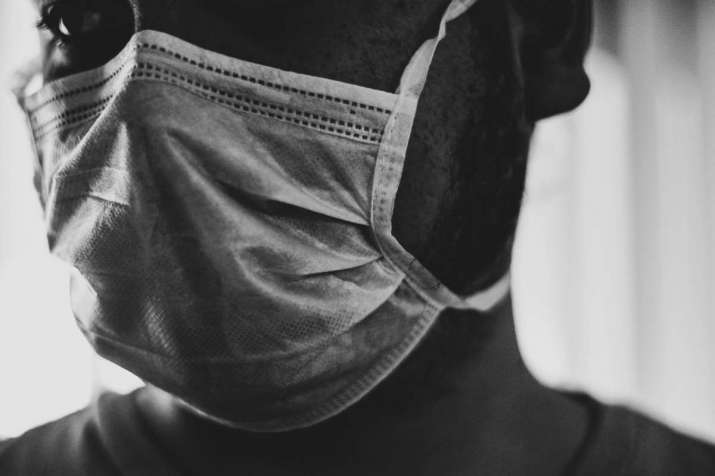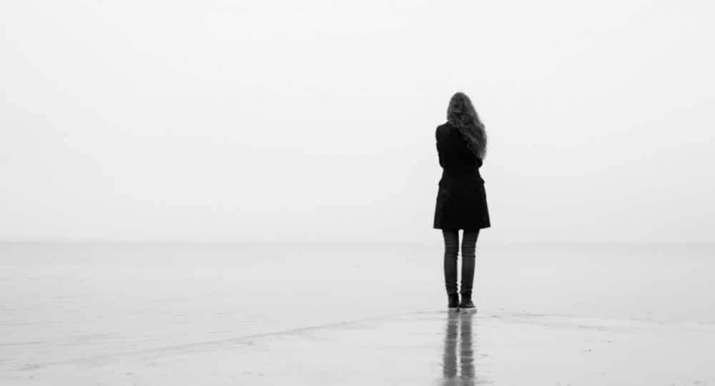FEATURES|COLUMNS|Academic Reflections
Let there Be Loss
 Photo by Tai's Captures
Photo by Tai's CapturesLike almost every one alive on the planet today, I am consumed by the news. I have been watching, first with an ignorant disregard, then with disbelief, then with a slow dawning of comprehension as the world apparently stopped spinning on its axis.
In Canada, we are going through the stages that are familiar to most everyone else at this point. We have reached the stage of “social distancing” in the hopes of “flattening the curve”—two expressions that I had never heard before but that have now become hauntingly familiar. We are all being ordered to stay home. Businesses are closed. Schools are shut. Borders are sealed. And we are looking ahead at what was initially going to be just “two weeks” but is now more likely to be measured in months. According to some, it might even be years.
And so now, like millions (billions?) of others, I am home with my family, trying to figure out how to approach this new normal. Articles are circulating with advice telling us to make a schedule, to get dressed in the morning, to develop a routine. Others offer recipe ideas. And remind us to take care of our neighbors.
But as I sit here tonight, trying to process, I realize that something is missing from the conversation. We should get dressed in the morning, we should create a routine and check on our neighbors. These are all good things. But it seems to me that what we also need is to take a moment to grieve the change. We need a moment to let the loss in.
The ramifications of this virus are going to be felt long after the virus itself has died. Countless families will lose loved ones. Countless others will have lost whatever financial security may have been theirs before. The economic consequences alone will be devastating, the trauma will be far reaching, and we will be rummaging through the remains for a very long time.
Each time I communicate with my students online, I have an urge to begin with: “I am so sorry this is happening.” They are at the beginning of their trajectories. They are supposed to be interacting, engaging, looking forward to the future. They are supposed to go on dates, go out clubbing, have a graduation ceremony. All of this is being halted. Some will not adapt well to online courses. Some will despair. Some will watch their families fall into ruin. All I want to say is, “I am so sorry this is happening.” I wish they could have ease instead.
I think about the homeless shelter not far from my house. How can they possibly manage this situation? Who will care if they don’t? I think about (strange as this may sound) the sex workers who are stranded on the margins of our society at the best of times. Where will they go for safety now? How will they feed themselves when their livelihood is such a risk? A point that is always true for them, but so much more true now.
I find myself thinking about waiters and physiotherapists and bartenders and healthcare workers and parents with young children. I open my eyes in the morning and there they all are. All the people in my community who are affected by these changes (never mind all the people further away). I am filling my imagination with the faces of all those who are struggling . . . so that I don’t have to look at my own reflection. So that I don’t need to feel that I am struggling too.
But I am struggling, and if I am going to manage the long haul ahead, I have to let myself feel it. Maybe not all at once, but some of it; one piece at a time. I have to let myself feel the sadness that I know is in the back of my mind or in the pit of my stomach. The loss that is ringing in my ears, that I am too afraid to hear.
We all have our reasons for not letting the loss in. Maybe it feels petty. The immensity of this moment can certainly be overpowering. Or perhaps we are too hyper. We live at such high speed most of the time, we don’t know how to slow down sufficiently to recognize loss when it arises.
But in my case, I think it is something else. It is not the speed at which I live or the pettiness that I fear I may be accused of. It is, rather, a problem with superstition: if I call loss by its name, it will become real. It would be much easier never to see it—then it is as though it is not even there.
 From pinterest.com
From pinterest.comBut it is there. There is loss. And I have to feel it before I can even try to move on. I have to feel the loss of my students, who were taken from me in the blink of an eye. One moment they were there, and the next they had all disappeared. All at once. I did not even have a chance to say goodbye. I will see them online, but it won’t be the same and we all know that.
I have to feel the loss of summer plans. Of projects, travels, of things I was looking forward to that have now dramatically changed. And perhaps (if I dare allow myself to feel this), the loss of my son’s elementary school graduation ceremony. That moment I have been waiting for, for such a long time. When I get to cheer his name and cry as I watch his little self become a bit older, right before my eyes.
And the dinners out with friends. The family milestones. Birthday celebrations. End-of-semester potlucks. Going to the gym. These moments are not gone forever, but they are gone for a while—longer than I am comfortable with, and there is loss in that too.
None of us really knows what we are in for. Time will be the one to tell. But if this is going the way we think, we may be self-isolating for a long time. And even when we emerge, I cannot imagine it will happen all at once with a big party. It will be gradual. And it will be done with no shortage of fear. It won’t be the same, because we will all have changed.
On the other side of loss, there is space, which is why loss must first be felt. On the other side, there are clear waters in Venice and clear skies in Beijing. Not all of this loss is negative. We may come out of this with clearer priorities about our shared future, a stronger sense of community, more attention devoted to the younger generations and what they need from us to get by.
But to reach the other side, we must go through. We cannot skip and go around (no matter how much we might want to). We must feel the loss, say goodbye to expectations, grieve the changes we did not ask for and did not want. Only then can we try to face forward, face the world as it has become (and not as we imagined it would remain).
Related features from Buddhistdoor Global
Buddhistdoor View: Remembering the Basics of Buddhist Practice as we Imagine our Future
Buddhistdoor View: Steady as She Goes – Compassionate Responses to Global Panics
Buddhistdoor View: Embracing Fear and Uncertainty














